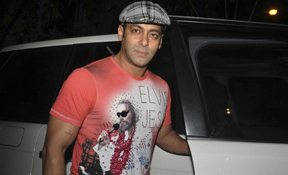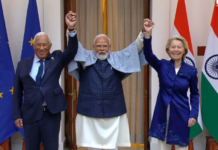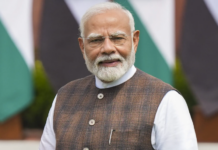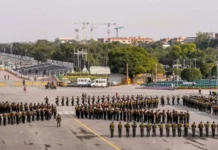 MUMBAI: Eleven years after Bollywood actor Salman Khan allegedly rammed his car into a shop killing one person and injuring four, the re-trial in this case began today with a witness deposing before a sessions court.
MUMBAI: Eleven years after Bollywood actor Salman Khan allegedly rammed his car into a shop killing one person and injuring four, the re-trial in this case began today with a witness deposing before a sessions court.
Samba Gowda, who was the first witness to depose in the court, said he had drawn panchnama of the articles seized by police on the day of the incident on September 28, 2002.
The witness told prosecutor Jagannath Kenjalkar that it was a big car involved in the accident and said police had reached the spot along with him. He further said the car had rammed into a laundry and its bumper had hit the shutter of the shop.
The witness said he saw glass pieces, number plate of the car and bumper parts lying on the spot. These articles were seized by police and a panchnama was drawn by him.
“I can identify the articles collected by police from the place of accident,” said Gowda, who hails from Karnataka.
Two more witnesses were discharged as they had admitted the panchnamas drawn by them.
Although the prosecution has submitted a list of 64 witnesses, it would not examine all of them, according to the public prosecutor.
Salman is facing the charge of running over his Toyota Land Cruiser on a group of persons sleeping on a footpath outside a bakery in suburban Bandra on September 28, 2002, killing one and injuring four others.
On December 5 last year, the court had ordered a fresh trial on the ground that the witnesses had not been examined in the context of aggravated charge of culpable homicide, which was invoked against the actor midway through the case.
The charge of culpable homicide not amounting to murder attracts a 10-year sentence. The actor had earlier been tried by a magistrate for a lesser offence of causing death by negligence, which entailed an imprisonment of two years.
The case, dragging on for over a decade, had taken a twist earlier this year when the magistrate, after examining 17 witnesses, held that the charge of culpable homicide was made out against Salman and referred the matter to a sessions court, as cases under this offence are tried by a higher court.–PTI






